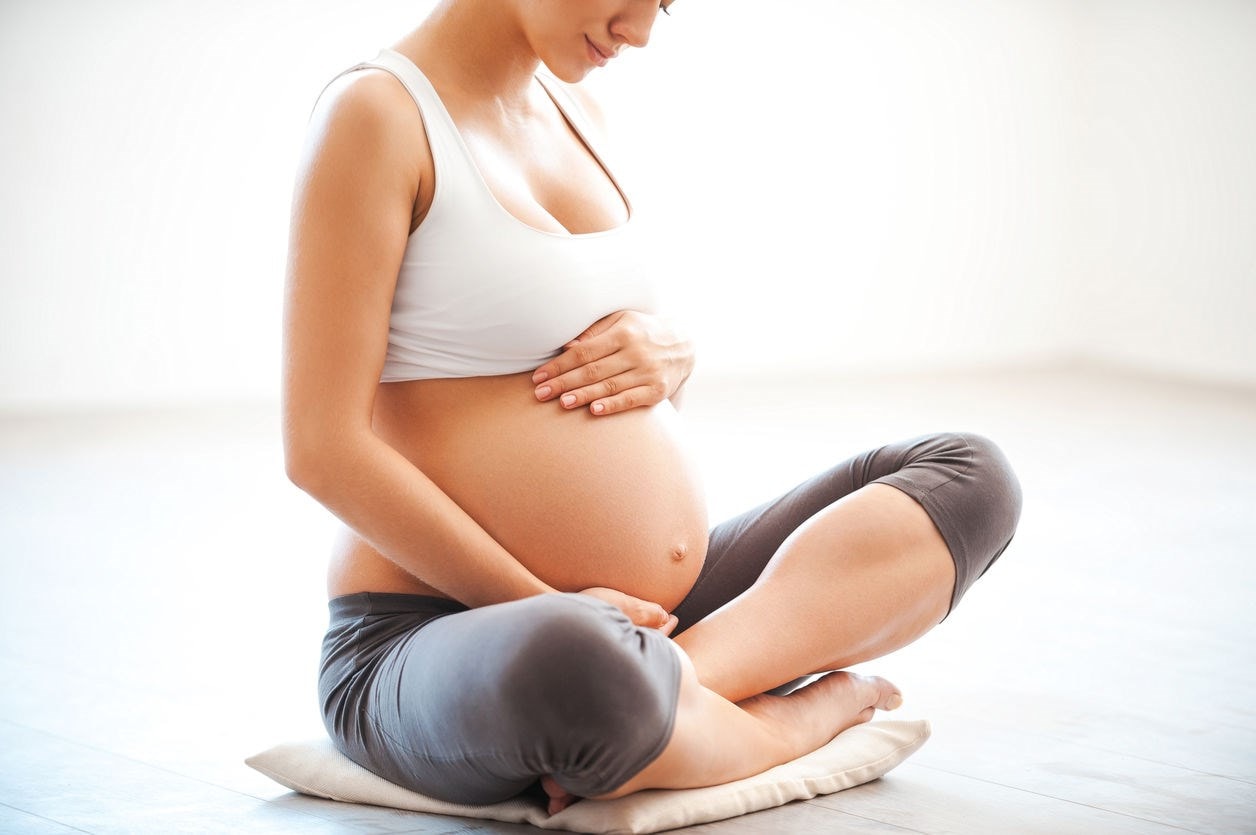Probiotics & Strep Infection in Pregnancy
For any healthcare practitioner, working with expectant mums can prove tricky. There are so many natural products that have not been trialled in pregnancy, and expectant mothers must be extremely cautious at this delicate time. This makes it even more exciting that a new study has just been published, which looks at the use of the two strains of probiotic bacteria and their possible effects in pregnant women with vaginal and rectal group B-streptococcus infection.
Within this article:

The trial which was performed in the Obstetric Department of the China Medical University Hospital, Taichung, Taiwan, enrolled 110 pregnant women, all of whom had tested positive for Group B Strep infection (GSB) during routine vaginal and rectal screenings between 35 and 37 weeks of pregnancy1. The study participants were divided in to two groups, one of which was given a probiotic formulation once a day at bedtime, and the other which was assigned a placebo to take each night at the same time. Of the 110 participants that enrolled in the study 99 completed it, which represented 49 women in the probiotic group and 50 in the placebo group.
Study methods
The women that were enrolled in the trial had all tested positive for GSB at 35-37 weeks gestation. GSB is thought to affect2 up to 15-40% of pregnant women, although it is often completely asymptomatic, so women do not necessarily know that they have it.
Whilst the infection may not pose any significant health threats to the mother, the worry is that it can be passed on to the baby via the amniotic fluid during delivery. If this happens then it can lead to potentially life-threatening conditions such as sepsis, pneumonia and even meningitis in the first week of their babies life. Antibiotics do not easily resolve GSB disease, so finding a natural alternative would be considered a real breakthrough.
The two study groups were given identical looking capsules, that either contained the probiotic formulation, consisting of Lactobacillus rhamnosus GR-1® and Lactobacillus reuteri RC-14® at a dose of 1 billion each per capsule, or a placebo. They were asked to take two capsules of their randomly assigned treatment before bed each night, until their delivery day.
Study results
Vaginal and rectal swabs were taken again from all of the study participants as they delivered their babies, and the results were analysed. It was found that 42.9% of women from the probiotic group had become Group B strep negative during the time of the probiotic intervention, whereas only 18.0% of the placebo group had had the same improvement. In terms of clinical findings these figures are very impressive. More than twice as many women in the probiotic group became clear of the GSB infection, than did the women in the placebo group, meaning that their babies were no longer at risk of cross-infection during delivery.
The study author commented that:
‘The results demonstrated that oral probiotic: L. rhamnosus GR-1® and L. reuteri RC-14® could reduce vaginal and rectal GBS colonisation in pregnant women.’
And added that:
‘To our knowledge, this was the first clinical trial to use probiotics as a regimen for reducing the vaginal and rectal GBS colonization in pregnant women.’
Study significance
Probiotics are generally regarded as some of the safest natural supplements on the market. They have relatively few contraindications and an excellent safety ‘record’, whilst also being safe to take during pregnancy.
For those practitioners working with women going through fertility problems, they may like to look at the growing amount of research in to asymptomatic Bacterial Vaginosis (BV). This condition has been linked to an increased risk of miscarriage during the first trimester4. It has also been linked to infertility and poor outcomes from IVF treatment.
Whilst BV is only one of the factors to consider when working with clients with fertility issues, it should certainly be included in any treatment discussions and considerations.
Clinical trials, have shown that the two strains of bacteria both greatly increase the efficacy of antibiotic treatment for BV5 Anukam et al, 2006, and also improve symptoms when used as a stand-alone treatment6 Cianci et al, 2008. Eradicating BV could be one step in the right direction on your clients fertility journey...
Summary
Both this new study, showing that Lactobacillus rhamnosus GR-1® and Lactobacillus reuteri RC-14® is effective at resolving Group B streptococcus infection in pregnant women, and also the earlier trials that show its efficacy in the treatment and prevention of Bacterial Vaginosis, thrush and Urinary Tract Infections.
As demonstrated, it can be safely used in pregnancy, and in women at greater risk of infection, such as menopausal women or those on hormone medications.
This new research showing a protective effect for babies born to Group B strep. infected mothers is heart-warming. Infections in such young infants can be catastrophic, as their immune system is still relatively undeveloped, so any steps that a mother can easily take to safeguard her unborn child will be very well received by most healthcare professionals and expectant mums.
To see more about Bacterial Vaginosis, you can read my earlier blog post here in the Probiotics Learning Lab
References
- Ho, M. et al (2016) Oral Lactobacillus rhamnosus GR-1 and Lactobacillus reuteri RC-14 to reduce Group B streptococcus colonization in pregnant women: A randomized controlled trial. Taiwanese Journal of Obstetrics & Gynecology. 55. 515-518
- Regan, J.A., Klebanoff, M.A., and Nugent, R.P.The epidemiology of group B streptococcal colonization in pregnancy. Vaginal Infections and Prematurity Study Group. Obstet Gynecol. 1991; 77: 604–610
- Kamala et al. (2009) Benefits of probiotic treatment in cases of bad obstetric history (BOH) and for prevention of post IVF pregnancy complications. J Obstet Gynecol India; 59, 4: 336-339
- Influence of bacterial vaginosis on conception and miscarriage in the first trimester: cohort study. S G Ralph, specialist registrar,a A J Rutherford, clinical director,b and J D Wilson, consultant physician
- Anukam et al. (2006) Clinical study comparing probiotic Lactobacillus GR-1 and RC-14 with met*******ole vaginal gel to treat symptomatic bacterial vaginosis. Microbes Infect; 8, 12-13: 2772
- Cianci et al. (2008) [Efficacy of Lactobacillus rhamnosus GR-1 and of Lactobacillus reuteri RC-14 in the treatment and prevention of vaginosis and bacterial vaginitis relapses]. Minerva Ginecol; 60, 5: 369-76
Popular Articles
View all Children's Health articles-
Children's Health18 Jan 2024

